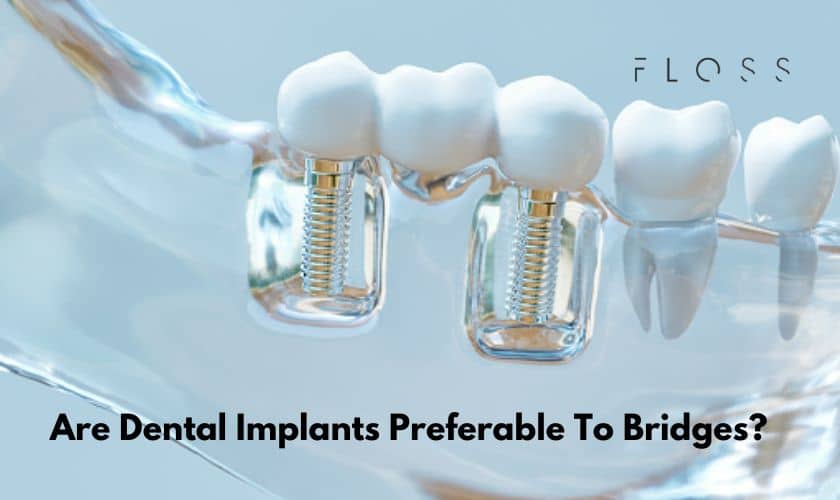“Should I have an implant or a bridge?” That is a typical question that many people have regarding tooth replacements. Although missing or extracted teeth might increase the risk of infection, finding a high-quality replacement choice is essential for a radiant, healthy smile.
Dental Implants: How They Work
Dental implants are another choice for lost tooth replacement. They serve as an alternative for many patients, and dentists frequently favor them over bridges or dentures. Dental implants may be your best option if you have periodontal disease, an injury, or another cause for a missing tooth or teeth.
The implant procedure will need oral surgery for you. Your dentist will typically perform this procedure while you are sedated.
The dentist will delicately screw the base onto your jawbone after drilling a small hole in it during surgery. Your gum is then placed over the dental implant so that it can heal.
A connector to the top of your dental implant after the implant base has healed in the second appointment. The dentist will next use a small screw and special dental cement to secure the crown on top of this connector.
Advantages Of Dental Implants
- Dental implants function most like natural teeth because of their strength and endurance.
- Implants can stop jawbone loss and make sure your bite is secure because they replace the tooth\’s root.
- The best choice for regaining your natural smile is dental implants.
- Dental implants can last a lifetime if properly maintained.
- Implants are the ideal solution when the teeth next to a lost tooth have extensive decay or are fragile.
Bridges versus dental implants – Which One Suits You Best?
Implants are by far the most lasting alternative to dentures or dental bridges. Dental implants are connected to your jawbone. This ensures their functionality and that they will endure as long as a healthy and natural tooth. Although dental bridges can also appear quite natural, implants have the most original appearance and feel. Nobody else will even be aware that you\’ve had an implant placed.
Dental implants are superior to bridges in terms of hygiene. The implant won\’t harm the neighboring teeth, so cavities and recurring decay are much less likely as a result. Yes, you\’ll still need to clean thoroughly, but the risks are much reduced.
The fact that implants are more expensive upfront is another major worry. A dental bridge\’s cost is always partially covered by a typical dental insurance plan. Bridges are an accessible and sensible option for many people. However, compared to a dental bridge, this implant is significantly less likely to need to be replaced.
After a bridge, is an implant possible?
Yes, it is the answer. A bridge could deteriorate and collapse over time. It might not appear to be as alluring as you had imagined. To enhance the appearance of your mouth, you might want to move from a bridge to a dental implant.
How Durable Are Dental Implants?
A dental implant might offer lifetime protection since it is sturdy than a bridge. The titanium metal cylinder of the implant is sturdy and resistant to decay and gum disease.
Final words
There is no right or wrong choice when choosing teeth replacements. It depends on your circumstances, such as how many teeth you have lost, your preferences, your financial situation, and your schedule.
